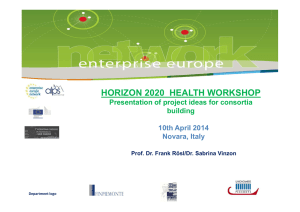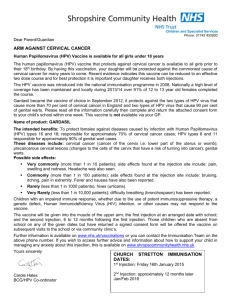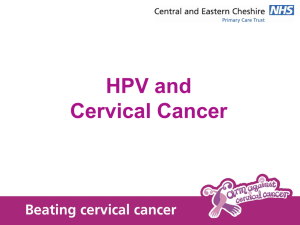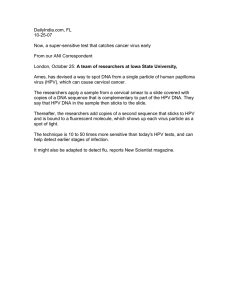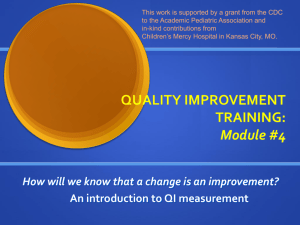‘Age is vital with HPV vaccine’ says pathologist Media Release
advertisement
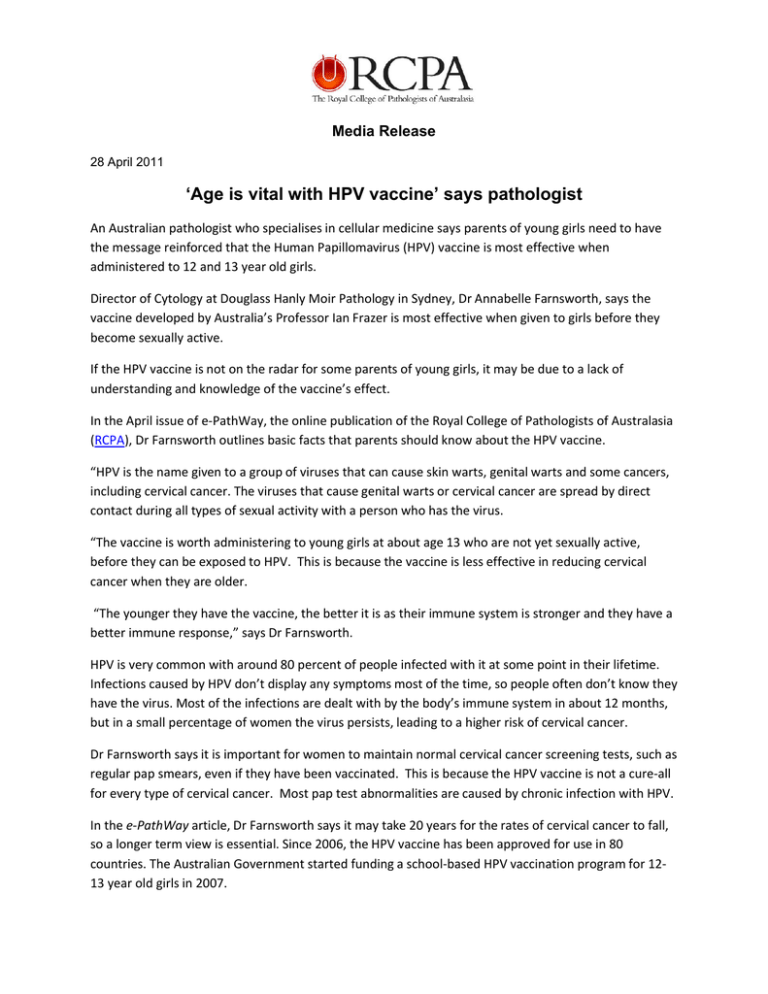
Media Release 28 April 2011 ‘Age is vital with HPV vaccine’ says pathologist An Australian pathologist who specialises in cellular medicine says parents of young girls need to have the message reinforced that the Human Papillomavirus (HPV) vaccine is most effective when administered to 12 and 13 year old girls. Director of Cytology at Douglass Hanly Moir Pathology in Sydney, Dr Annabelle Farnsworth, says the vaccine developed by Australia’s Professor Ian Frazer is most effective when given to girls before they become sexually active. If the HPV vaccine is not on the radar for some parents of young girls, it may be due to a lack of understanding and knowledge of the vaccine’s effect. In the April issue of e-PathWay, the online publication of the Royal College of Pathologists of Australasia (RCPA), Dr Farnsworth outlines basic facts that parents should know about the HPV vaccine. “HPV is the name given to a group of viruses that can cause skin warts, genital warts and some cancers, including cervical cancer. The viruses that cause genital warts or cervical cancer are spread by direct contact during all types of sexual activity with a person who has the virus. “The vaccine is worth administering to young girls at about age 13 who are not yet sexually active, before they can be exposed to HPV. This is because the vaccine is less effective in reducing cervical cancer when they are older. “The younger they have the vaccine, the better it is as their immune system is stronger and they have a better immune response,” says Dr Farnsworth. HPV is very common with around 80 percent of people infected with it at some point in their lifetime. Infections caused by HPV don’t display any symptoms most of the time, so people often don’t know they have the virus. Most of the infections are dealt with by the body’s immune system in about 12 months, but in a small percentage of women the virus persists, leading to a higher risk of cervical cancer. Dr Farnsworth says it is important for women to maintain normal cervical cancer screening tests, such as regular pap smears, even if they have been vaccinated. This is because the HPV vaccine is not a cure-all for every type of cervical cancer. Most pap test abnormalities are caused by chronic infection with HPV. In the e-PathWay article, Dr Farnsworth says it may take 20 years for the rates of cervical cancer to fall, so a longer term view is essential. Since 2006, the HPV vaccine has been approved for use in 80 countries. The Australian Government started funding a school-based HPV vaccination program for 1213 year old girls in 2007. The full article with Dr Annabelle Farnsworth’s information about the Human Papillomavirus (HPV) vaccine can be found in the current edition of e-PathWay. ENDS Media enquiries: Dr Debra Graves CEO – RCPA 0417 218 528 or Martin Powley S2i Communications 0417 803 890

